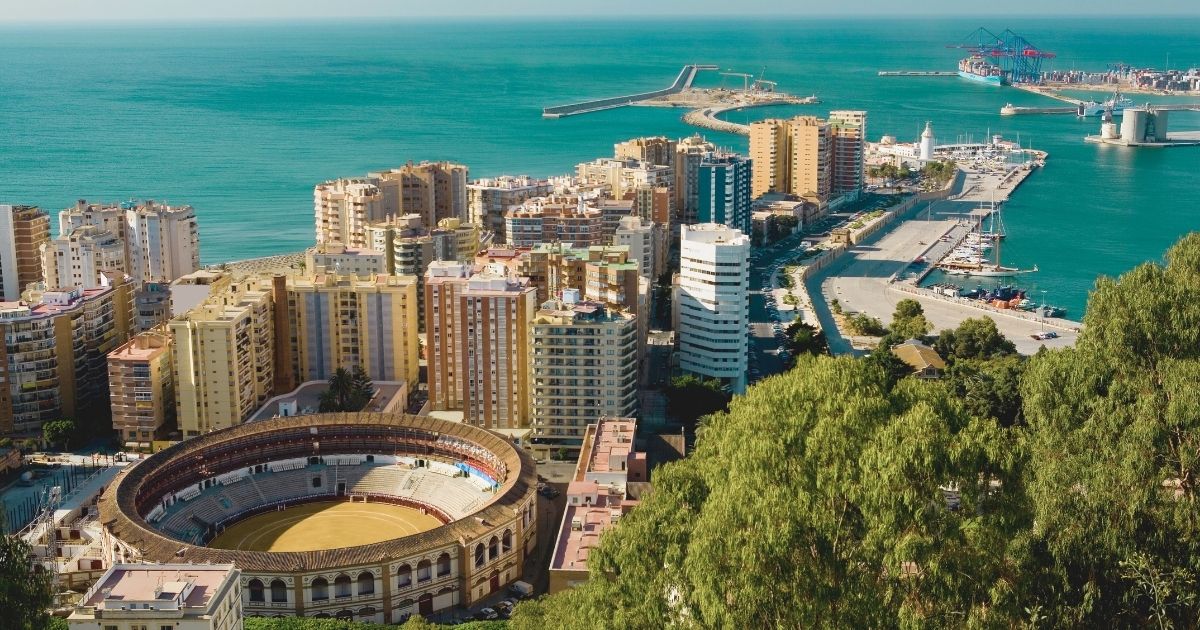Malaga, the sun-soaked gem of Spain’s Costa del Sol, has rapidly transformed from a tourist destination into a thriving hub for location-independent professionals. With its blend of Mediterranean lifestyle, rich cultural heritage, and growing digital infrastructure, this Andalusian city presents a compelling case for nomads seeking their next base.
Before making the move, however, it’s essential to understand both the advantages and challenges of establishing yourself in this coastal paradise. When examining living in Malaga, pros and cons must be carefully weighed to ensure the city aligns with your professional needs and lifestyle preferences.
In this guide, we’ll explore the authentic experience of setting up as a digital nomad in this vibrant Spanish city, providing balanced insights to help you make an informed decision about your next destination.
The lifestyle advantages of choosing Malaga

The undeniable allure of Malaga begins with its exceptional quality of life, combining Mediterranean charm with practical amenities that support productive remote work. When considering living in Malaga, pros and cons related to lifestyle often top the list for digital nomads.
Climate and natural environment
Perhaps the most celebrated aspect among the living in Malaga is its outstanding climate, with over 300 sunny days annually and temperatures that rarely dip below 10°C (50°F) even in winter. This Mediterranean weather pattern creates an outdoor-oriented lifestyle that many digital nomads find rejuvenating after time spent in colder, cloudier regions.
The city’s location between mountains and sea offers diverse natural experiences within minutes of the urban center. Morning beach sessions, afternoon mountain hikes, and evening promenades along the restored port area provide refreshing breaks from screen time.
🌟 Pro tip: when weighing the benefits of living in Malaga, pros and cons regarding accommodation include outdoor spaces like a balcony or terrace. The exceptional climate means these areas become valuable extensions of your living and working space throughout most of the year. South-exposed bay windows, on the other hand, could mean too much sun in the summer.
Cost-effectiveness for digital nomads
Among the most compelling aspects of living in Malaga is its affordability compared to other European digital nomad destinations. Housing costs remain reasonable, with one-bedroom apartments in desirable central neighborhoods available from €600-800 monthly, while shared accommodations can reduce this expense further.
Daily expenses reflect similar value, with café work sessions typically costing €2-3 for quality coffee, restaurant meals starting around €10-15, and excellent local wine available for €3-4 a glass. Transportation costs are minimal, with most necessities within walking distance in the compact center, and monthly public transport passes priced at approximately €40.
Cultural richness and accessibility
When analyzing the advantages of living in Malaga, pros and cons regarding the city’s cultural offerings represent a significant factor. Malaga boasts over 3,000 years of history, where Phoenician, Roman, Moorish, and Spanish influences create a fascinating cultural tapestry. The city hosts more than 30 museums, including the Picasso Museum (the artist was born here), the Centre Pompidou Málaga, and the Carmen Thyssen Museum.
Beyond formal cultural institutions, the city’s calendar overflows with festivals, from Semana Santa (Holy Week) processions to the vibrant August Feria. These events offer natural opportunities to connect with locals and fellow internationals alike.
All this does mean that Malaga is beloved by tourists, though, so keep it in mind if what you’re looking for is peace and quiet.
💡 Did You know? When researching living in Malaga pros and cons, many nomads are surprised to learn that, despite being Andalusia’s second-largest city, Malaga’s historic center is remarkably compact, with most major attractions, coworking spaces, and popular neighborhoods within a 20-minute walk of each other.
Professional infrastructure for remote workers

Beyond lifestyle benefits, the practicalities of remote work play a crucial role when evaluating the pros and cons of living in Malaga for digital professionals. The city has made significant strides in developing infrastructure that supports location-independent careers.
Coworking ecosystem and community
The coworking landscape has expanded dramatically in recent years, with over 20 dedicated spaces now operating throughout the city. Options range from corporate-style environments like The Workshop to more community-focused spaces such as La Térmica. Monthly memberships typically range from €130-200, with many spaces offering flexible packages.
These coworking hubs serve as more than just workspaces; they’ve become nexus points for Malaga’s growing international remote worker community. When examining living in Malaga, pros and cons regarding this built-in professional network represent a significant factor, and usually an advantage for combating the isolation many remote workers experience.
Digital connectivity and tech scene
Fiber optic internet now covers most of central Malaga, with connection speeds typically between 300Mbps and 1Gbps in homes, apartments, and professional spaces. This reliable digital infrastructure represents one of the most positive aspects when weighing living in Malaga (pros and cons) for tech-dependent professionals. The city also offers excellent 4G/5G coverage, with 5G expansion continuing throughout the metropolitan area.
While maintaining connectivity at your accommodation and coworking space is generally seamless, staying connected during exploration requires additional preparation. A reliable travel eSIM from Holafly ensures consistent connectivity throughout Spain without the hassle of physical SIM cards or hunting for public WiFi. This solution proves especially valuable during initial settlement periods or when working from Malaga’s numerous beaches, parks, and cafés.
🌟 Pro tip: when evaluating apartments and considering the pros and cons of living in Malaga, conduct internet speed tests before signing any lease. Connection quality can vary significantly between buildings, especially in older structures in the historic center.
The challenges of living in Malaga

While the advantages are substantial, a balanced assessment of living in Malaga means pros and cons must be acknowledged, and potential digital nomads should consider certain challenges before relocating.
Language and integration barriers
Despite Malaga’s international profile, Spanish proficiency significantly enhances your experience in the city. While tourist areas and some professional settings accommodate English speakers, daily interactions—from resolving apartment issues to building meaningful local relationships—often require at least basic Spanish. When evaluating living in Malaga, pros and cons include the language barrier, which represents one of the more significant challenges for non-Spanish speakers.
The expatriate nature of the digital nomad community can sometimes create a bubble effect, where internationals primarily interact with each other rather than integrating into local society. This pattern limits cultural immersion and can lead to a sense of disconnection from the authentic Malaga.
Seasonality and tourism Impacts
The dual identity of Malaga as both residential city and tourist destination creates seasonal dynamics that affect daily life. In the living in Malaga pros and cons equation, summer months (June-August) represent a challenging period with significantly increased crowds, higher prices, and occasional resource strain. Restaurant reservations become essential, favorite spots become overcrowded, and the general pace shifts toward tourism rather than local rhythms.
Housing availability fluctuates seasonally, with some landlords preferring lucrative short-term summer rentals over year-round tenants. This pattern can create challenges in finding stable accommodation or result in premium prices for guaranteed annual leases.
Administrative and bureaucratic challenges
Navigating Spanish bureaucracy presents one of the more significant hurdles when assessing living in Malaga pros and cons for long-term stays. Processes from obtaining a NIE (Foreigner’s Identification Number) to setting up banking, internet services, or healthcare access often involve multiple appointments, extensive documentation, and significant patience.
For non-EU citizens, visa limitations add another layer of complexity. Spain’s recent digital nomad visa offers new possibilities but comes with specific income requirements and application procedures. Without proper visa planning, some digital nomads find themselves needing to exit the Schengen Area periodically, disrupting the continuity of their stay.
🌟 Pro tip: when dealing with administrative matters and navigating the bureaucratic aspects of living in Malaga, pros and cons of morning versus afternoon appointments are worth considering. Schedule appointments early in the morning whenever possible for shorter wait times and increased likelihood of completing processes in a single visit.
Practical considerations for different nomad profiles

The suitability of Malaga varies depending on your specific circumstances as a digital nomad. The pros and cons of living in Malaga will weigh differently based on your work style, social preferences, and personal priorities.
Essential factors to consider before relocating
When evaluating whether Malaga aligns with your needs, assess these key factors:
- Work schedule compatibility with Spanish business hours (many businesses close for afternoon siesta)
- Climate preferences (hot summers may challenge those sensitive to heat)
- Noise tolerance (Spanish culture embraces vibrant street life well into the evening)
- Community needs (solo travelers vs. families have different requirements)
- Budget parameters (while affordable by European standards, costs vary by neighborhood)
- Transportation requirements (car dependency vs. preference for public transit)
Different neighborhoods offer varied experiences. El Centro provides maximum convenience but higher costs and tourist presence. Soho offers an artistic atmosphere with growing digital nomad communities. East of center, neighborhoods like Pedregalejo and El Palo provide beachfront living with more residential character.
Final thoughts on living in Malaga (pros and cons) as a digital nomad
The reality of establishing yourself as a location-independent professional in this coastal city offers a compelling balance of advantages and challenges. When considering living in Malaga, pros and cons such as the city’s combination of Mediterranean lifestyle, affordability, cultural richness, and growing digital infrastructure, along with the restrictions that come with more tourist-centric locations, all play in the balance.
The key to success lies in approaching the experience with realistic expectations and preparation. Language preparation, cultural openness, and administrative patience significantly enhance integration, while maintaining professional discipline ensures you benefit from the lifestyle without sacrificing career progress.
For digital nomads seeking a European base that balances quality of life with practical workability, Malaga presents an increasingly attractive option when all pros and cons are considered.
Understanding all the aspects of living in Malaga (pros and cons) helps digital nomads make informed decisions about relocating to this vibrant coastal city. For more insights on establishing yourself successfully in Spain, explore Nomada’s comprehensive resources on everything from Spanish visa options to cultural integration tips.
Ready to experience the perfect blend of Mediterranean lifestyle and digital productivity? Let Nomada guide your transition to Malaga with practical solutions for location-independent professionals 👉
Frequently asked questions about living in Malaga (pros and cons)
A solo digital nomad can live comfortably for €1,500-2,000 monthly, including accommodation (€600-800), food (€400-500), coworking (€150-200), transportation (€50), entertainment (€200-300), and miscellaneous expenses (€100-150). Couples sharing accommodation can reduce per-person costs by approximately 30%.
Securing quality long-term housing requires persistence and timing. The best opportunities appear in October-November and January-February, outside peak tourist seasons. Local real estate agencies often have exclusive listings not found on international platforms, though many require in-person visits and Spanish communication.
Within the city center, a car is unnecessary and often inconvenient due to limited parking and pedestrianized zones. Public transportation serves the metropolitan area well, while occasional car sharing services cover special needs. However, exploring rural Andalusia or remote beaches benefits from vehicle access.
Malaga hosts a robust and growing international remote worker community, with regular meetups, skill-sharing events, and social gatherings. Facebook groups like “Digital Nomads Malaga” and applications such as Meetup regularly feature community events. Coworking spaces often serve as community hubs.
Non-EU digital nomads can utilize Spain’s new Digital Nomad Visa (requiring income verification and health insurance), the Non-Lucrative Visa (for those with passive income), or the Entrepreneur Visa (for startups/business owners). Alternatives include the Student Visa for those combining work with Spanish language study.



